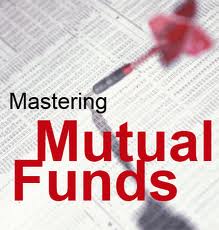It is the Wall Street that gave birth to mutual funds. They are considered as one of the simplest and easiest ways to invest your money in the financial market. However, if you are a budding investor, then you’ll have to make extensive research on the subject before you start off with mutual fund investments.

Mutual Funds – What are they?
Simply put, mutual funds accumulates money sourced from a lot of investors to build up a portfolio of multiple assets like real estate, bonds, stocks and various other securities, as per the standard charter. Through a mutual fund, each and every investor gets to share the spoils of the market.
Does Mutual Funds allow you to diversify your Portfolio?
Yes, definitely. The fact is for most of the mutual funds you’ll have to shell out only a moderate amount of money, thus helping you to build a properly diversified investment portfolio much more affordably than you’d otherwise, if you were to do that on your own.
What are the Types of Mutual Funds?
There are two major sub-divisions of mutual funds, closed-end funds and open-ended funds but the latter further gets divided into load as well as no load. Here are some short descriptions about them:
Open-end Funds
Most of the mutual funds are of open-end in nature. In other words, these funds does not comprise of a set of shares. Rather, they’ll float fresh shares to the investors on the basis of present net asset value and recover the shares whenever an investor decides to sell off a particular mutual fund. These financial tools always show the net asset value of their underlying investments. This is because shares are floated and terminated whenever required.
Closed-end Funds
This type of mutual fund comprises of a set of shares that is floated in the market through an IPO or Initial Public Offering. All of these shares are traded on the open market. However, since they are not like those non-redeemable open-end mutual funds or even issue new shares in the market like that of the normal ones, this is why they are subjected to market forces like demand and supply. Due to this fact, closed-end funds are usually traded at a discount with respect to their net asset value.
Load
In relation to the mutual funds, load is referred to the commission earned on every sale. So, in case a particular mutual fund levies a load, then the investors will have to pay the sales commission along with the net asset value of the fund’s shares.
No-load
Alternatively, no-load provides better return on investments because of their reduced expenses with respect to ownership costs.
However, it is important for you to consult a certified financial planner so as to work in accordance a proper investment plan. This will help in to reduce undue risks and increase your returns.























